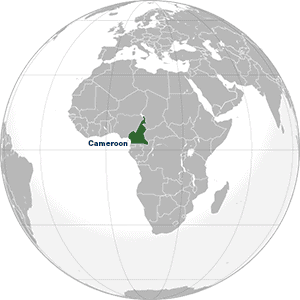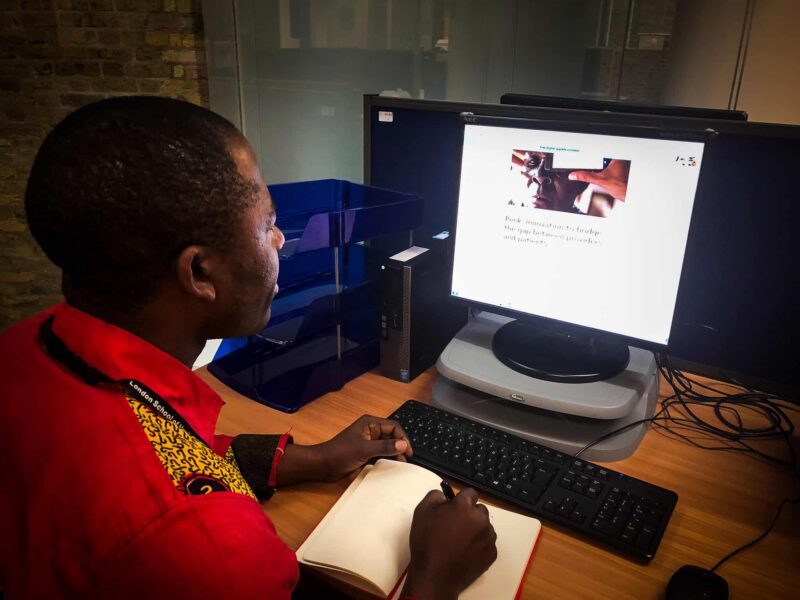 AfroLeadership had been working on open data for several years, when internet shutdowns in Cameroon led them to investigate digital rights.
AfroLeadership had been working on open data for several years, when internet shutdowns in Cameroon led them to investigate digital rights.
Charles says that this was a shift for the organisation,
“We understood clearly that the shutdowns were a human rights issue, but our work was far from this. My background is in tech, and I saw clearly that digital rights is at the crossroads of technology and human rights.”
The first phase of Internews funding and support enabled Charles and the team to mainstream digital rights throughout their work, and to build a coalition of organisations with similar values to address the issue.
AfroLeadership quickly realised that communication was key, particularly when working with organisations whose focus was traditionally on offline human rights.
“You need to focus more on the rights question – to create the connections before drawing them to your space,” Charles says. “It’s a new language for people. You have to meet them where they are.”
Charles and his team organised meetings and forums in which journalists, civil society groups and parliamentarians could meet to discuss digital rights.
Although these were well attended, this approach was not risk-free.
In Cameroon, anyone speaking out against the government is at risk of arrest or imprisonment, ‘or worse’, as Charles says.
AfroLeadership has had to find ways of advocating for change without being seen as dissidents, and this had meant some difficult choices.
Charles is well known to the Cameroonian media as someone who disagrees with the government on internet freedom, and he is frequently asked to comment.
This offers an opportunity to raise awareness of the issue amongst the wider public, but it could also lead to damaged relationships with policy makers, to say nothing of the risk to Charles’ personal safety.
AfroLeadership has taken the decision to refuse all interviews for the time being, focusing on building relationships with policymakers, and growing the national digital rights coalition.
In a closed society, change can be slow, but the work of the coalition is already bearing fruit: their principle objective was to prevent internet shutdowns during the 2018 elections, and this was achieved.
Now, AfroLeadership is gaining recognition as a leading expert on internet freedom in Africa. Charles is regularly asked to speak at international conferences, and credits Internews for this, saying,
“Not many donors trust organisations in Africa. But because of Internews, we have built our organisation and shown that we can be trusted.”
AfroLeadership is now hoping to expand the digital rights coalition into neighbouring countries, and to work more closely with other Internews grantees in West Africa.
More Case Studies:
Togo | Bolivia | The Gambia | Argentina | India | Kyrgyz Republic | Ukraine | Cameroon | Mexico | Grassroots Initiatives Home Page
(Banner photo: A man in Cameroon takes an online course. Credit Romulo Fabunan/ICEH/cc/flickr)
